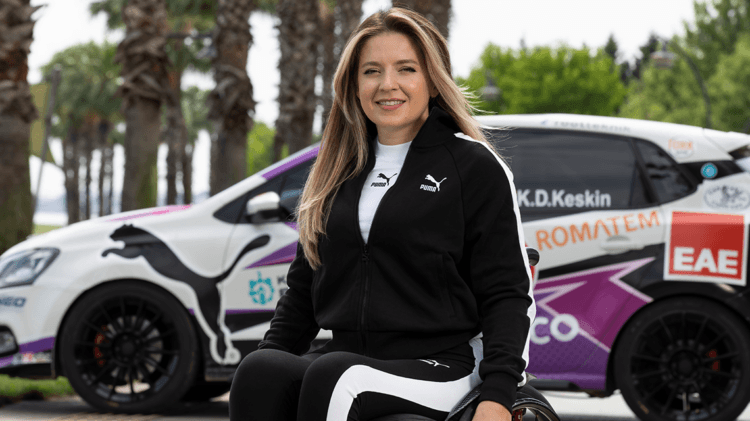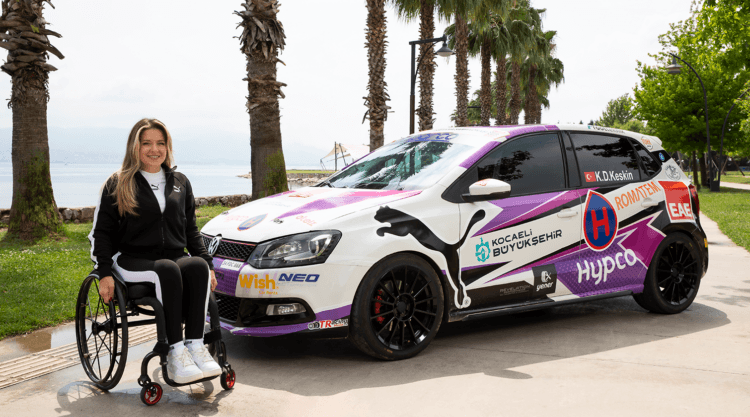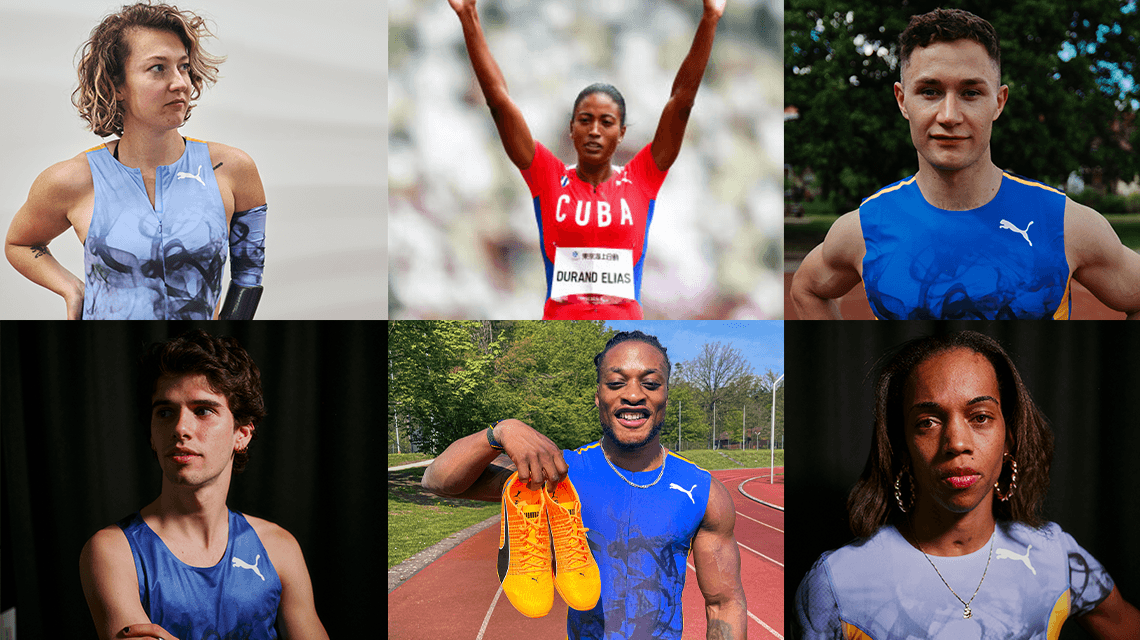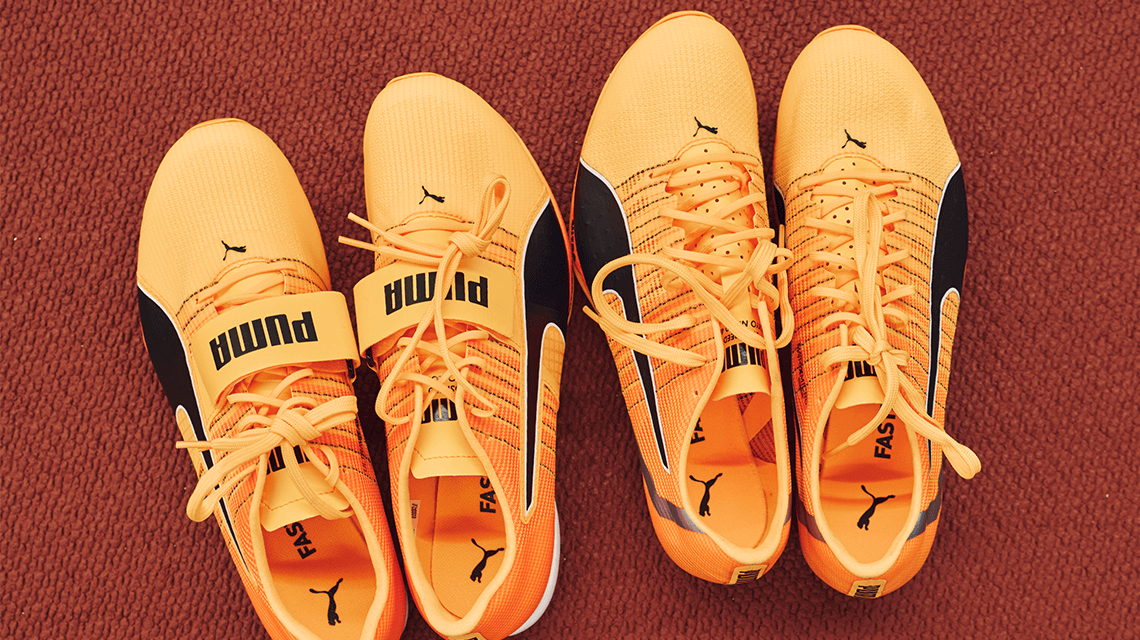
"I've had a passion for
speed since I was a kid"
Interview with PUMA Athlete Kübra Denizci, Turkey’s First Ever Female Tetraplegic Rally Driver
July 19, 2023Interview with PUMA Athlete Kübra Denizci, Turkey’s First Ever Female Tetraplegic Rally Driver
July 19, 2023PUMA has signed Turkey’s first ever female tetraplegic rally driver, Kübra Denizci! As one of the only two women with a spinal cord injury to compete in motorsport, Kübra is a true inspiration to all. Since her accident 19 years ago, Kübra has continued to break down barriers in the world of motorsport.
CATch Up had the opportunity to talk with Kübra about her experience as a tetraplegic rally driver and her hopes for the future of motorsport. Emphasising the fact that there is no disabled category for motorsport like in other sports, Kübra advocates for other aspiring racers with disabilities to have the same opportunities as others.
“I asked myself what kind of life would Kübra want to live if she had not suffered this accident.”
Can you tell us about your journey from the accident to becoming a rally driver.
Kübra: Before my accident, I was an energetic and adrenaline loving person. After I started living with a wheelchair, the automobile became the place where I felt the most free. I can push the limits with a car. I am the first in Turkey and second in the world as a disabled female pilot. First, I researched people competing abroad. Then I got the approval of the Turkish Federation, got a license and started to compete.
What motivated you to pursue your dream despite the challenges?
Kübra: My life motto is not to give up. After this accident, I asked myself what kind of life would Kübra want to live if she had not suffered this accident. And despite the difficulties, I worked hard to live the same life and realize my dreams. Of course, my disability limits me in some things, but I have accomplished exactly what I wanted and dreamed of.
What role did physical therapy play in your ability to become a rally driver?
Kübra: Motorsports require very good conditioning and endurance. Although I had an injury in 2004, I never gave up physical therapy and sports. And I kept my body ready for this sport. I wouldn’t be able to do this if I didn’t have good arm and back strength.
Could you describe the modifications and adaptations made to your rally car to accommodate your needs as a disabled driver?
Kübra: The vehicle has the same safety measures as other pilots. The only difference is that there is a device on the steering wheel that provides hand control for gas and brake.
What does it mean to you to be the first disabled female racecar driver in Turkey? How has this achievement impacted your life and how do you hope it will impact the lives of others?
Kübra: This is an indescribable happiness for me. I was very happy when the FIA shared the news on Instagram. Being a first in our country and being announced to the world will be a great source of hope for people who are in similar conditions to me. A lot of disabled people contacted me, got information about this process. I think that I am a source of motivation for people who have gone through similar processes to make their dreams come true.
What kind of support did you receive from your team and sponsors in acquiring a racing vehicle and participating in motorsports?
Kübra: I wouldn’t have been able to do this without my sponsors and my team. Motorsports is a very expensive field. First of all, I found a sponsor and bought a vehicle for myself. My team supported me a lot in turning this car into a racing car and giving the necessary training. Later on, I received support for my equipment and race costs from other sponsors
“Women, men and disabled compete in the same category of motorsports. As in other branches, there is no separate disability category.”
As a disabled driver, what are some of the challenges you face in motorsports? How do you overcome them?
Kübra: Women, men and disabled compete in the same category of motorsports. As in other branches, there is no separate disability category. I struggle despite my body limitations. In my racing car, I hold the gas/brake in one hand and the steering wheel in the other. Racing with one hand is not so easy when your vehicle reaches the upper limits. But I am more motivated by this situation. Being able to compete with healthy people gives me a greater motivation.
For you, what is the most exhilarating thing about being a racecar driver?
Kübra: I’ve had a passion for speed since I was a kid. And I take great pleasure in competing. I love the competition discipline. The training before, the preparations with the team and the adrenaline at the time of the race is an indescribable pleasure for me.
What advice do you have for other disabled individuals who aspire to pursue their dreams, particularly in the field of sports or motorsports?
Kübra: First of all, it is very important to be physically ready for this process. I recommend them to do sports in their daily life. The rest is imagination and effort. To find sponsors, you need to convince others of your dreams. And the most important thing is to be ready for the intense pace of motorsports. Preparations before the race, preparation of the vehicle, training in the simulator take a lot of your time. You must be ready for this.
Could you share a memorable moment or experience you’ve had while competing as a rally driver? Is there a race or achievement that stands out to you?
Kübra: The most memorable moment for me was my first start. Because I dreamed of this moment so much. And getting a trophy in my first race made me very happy. It was a great source of motivation for the next races.
What are your aspirations and goals for your future in motorsports?
Kübra: My dream is to finish the 2023 season with a good place in Turkey’s championship. In 2024, I want to compete both in Turkey and in Europe. If I can race abroad, I will be the only female pilot in the world who is actively in the championship. I want to get the national athlete title.
How do you envision the future of motorsports for disabled individuals?
Kübra: There are many difficulties and obstacles for disabled athletes both in Turkey and in the world. But I think the more we don’t give up, the more awareness we create. Now, more support is given to disabled people within the scope of social responsibility. The FIA is supportive in this process.


